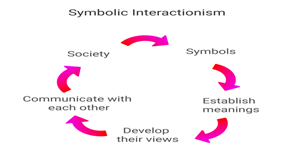


Instruction:
- There will be 2 questions carrying the First Question is-10 marks Write your answers in 150 words and the Second Question is-15 marks Write your answers in 250 words.
- Any page left blank in the answer-book must be crossed out clearly.
- Evaluated Copy will be re-uploaded on the same thread after 2 days of uploading the copy.
- Discussion of the question and one to one answer improvement session of evaluated copies will be conducted through Google Meet with concerned faculty. You will be informed via mail or SMS for the discussion.
Question #1. Trace the evolution of the interdisciplinary relationship of Psychology and Sociology.10 marks (150 words)
Question #2. Write a short note on Non Positivist Methodologies 15 marks (250 words)
(Examiner will pay special attention to the candidate's grasp of his/her material, its relevance to the subject chosen, and to his/ her ability to think constructively and to present his/her ideas concisely, logically and effectively).
STEPS & INSTRUCTIONS for uploading the answers
Step 1 - The Question for the day is provided below these instructions. It will be available at 7:00 AM.
Step 2 - Uploading of Answers : Write the answer in A4 Sheet leaving proper margins for comments and feedback and upload the PDF in MY ACCOUNT section. Click on the option of SUBMIT COPY to upload the PDF.
Step 3 - Deadline for Uploading Answers: The students shall upload their answers by 7:00 PM in the evening same day. The first 50 copies will be evaluated.
Step 4 - Feedback : Mentors will give their feedback for the answers uploaded. For more personalised feedback, join our telegram channel by clicking on the link https://t.me/mains_answer_writing_cse . A one-to-one session will be conducted with the faculty after copy evaluation in 72 Hrs.
Model Answer
Question #1. Trace the evolution of the interdisciplinary relationship of Psychology and Sociology.10 marks (150 words)
Hints
Psychology and Sociology are two broad disciplines which are related to the study of humans, wherein ‘psychology’ refers to the study of the human mind, i.e. it is concerned with what’s going on inside the brain of a person, to understand the reasons of his/her behaviour in different circumstances. On the contrary, ‘sociology’ implies studying human behaviour in a group or society and reasons thereof.
There are two extreme viewpoints regarding the relationship between the two fields of study:
- S. Mill tried to establish psychology's primacy above all other social sciences and thought that all laws are derived from the laws of the mind. Contrarily, Durkheim radically distinguished between the phenomena investigated by psychology and sociology, respectively. His research on "Suicide" even had a tendency to underestimate psychological disposition when considering societal phenomena.
However, the majority of sociologists have taken a number of middle ground stances. Ginsberg contends that by connecting sociological generalisations to universal psychological principles, they can be more solidly established. German academics like Weber came to feel that attempts to comprehend social behaviour in terms of underlying meanings can further deepen sociological explanations.
Difference between the two:-
|
Psychology |
Sociology |
|
It is the study of personality. |
It is the study of ‘individual and society’ |
|
It is the science of man’s experience and behavior and its subject matter includes – basic instincts, sympathy, suggestions, imitations, passions and so on |
It is the science of study of social institutions and their inter-relationships and its subject matters include – family, individual, religions, power, social change and so on |
|
It is more scientific and has more scope of experimentation and there are even psychological laboratories which are used. |
It has multiple perspectives and its claim of scientific discipline is contested within the discipline itself. |
Nevertheless, there are number of propositions which correlate the two:
- Gerth and Mills define 'role' as a meeting point between social structure and individual character and thus meeting point of social psychology and sociology.
- Sociological imagination (by CW Mills) equips social psychologists with the vision essential to think about all the possible social factors and conditions that may influence individual’s thought process, feelings, and behaviour.
- There are topics of common interest to both, like crime, juvenile delinquency, domestic violence, alcoholism. Gun violence in USA has been a subject of both psychological and social discourses in recent times. Indoctrination of vulnerable youths is another area of convergence.
Social psychology serves as a bridge between psychology and sociology, maintaining a primary interest in the individual but concerns itself with how the individual behaves in social groups, collectively with other individuals.
Question #2. Write a short note on Non Positivist Methodologies 15 marks (250 words)
Hints
As the 19th century got underway, social scientists like Wilhelm Dilthey and Heinrich questioned the positivist and naturalist approaches to studying social life, arguing that human society's distinctive meanings, symbols, laws, norms, and values set the social world apart from the natural world. This rationale led to the emergence of non-positivist methodology.
Positivists believed that society was predetermined and that man was merely a component subject to its laws whereas Non-positivists believed that man was a free-thinking creature with the capacity to shape society.
Max Weber was one of the pioneers of the Non-Positivist approach. Other early doyens were Mead, Herbert Blumer and Schutz. As more researchers became aware that social problems could not be solved by relying solely on set laws, non-positivism became more popular.
Emerging non-positivist methodologies include: -
- Symbolic Interactionism: (proposed by Mead)
The idea of symbolic interactionism postulates that humans react to aspects of their surroundings in accordance with the arbitrary meanings they ascribe to them, such as meanings that are generated and altered through social interaction through symbolic communication with other people.
For example, studies show that even while teenagers are aware of the risks associated with tobacco use, many continue to smoke because they believe it to be cool and that it helps them stand out among their peers. Therefore, the facts about smoking's risks are superseded by its symbolic meaning.
- Phenomenology: (Alfred Schutz)
Phenomenology is the study of the formal structures of concrete social existence as made available in and through the analytical description of acts of intentional consciousness.
An example is Atkinson's study of suicide where he concluded that suicide is not a social fact that can be objectively revealed in death statistics, but rather it is a conclusion reached by a coroner, who collates various pieces of evidence relating to the mode of death in order to reach that conclusion.
- Ethnomethodology: (Harold Garfinkel)
It is defined as – ‘the study of the body of common-sense knowledge and the range of procedures and considerations by means of which the ordinary members of society make sense of, find their way about in, and act on the circumstances in which they find themselves.
However, non-positivists methodologies also attract criticism such as:
- Depends on the ability of the researchers
- Vague methods like Verstehen
- Time-consuming and costly
- Contradictory explanations in few cases
- Reliability and validity is difficult to achieve
Hence, both the approaches have pluses and minuses, as Alan Bryman says, the choice of methodology depends upon the type of research. Furthermore, triangulation of different methods is undoubtedly a better approach to go forward.

